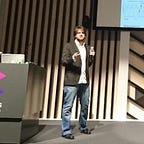Ethics in the digital era
Ethics is an ancient matter for human kind, from the origin of civilizations ethics have been related with the most relevant human concerns and determined human behavior. Ethics was initially related to religion, politics and philosophy to then be fragmented into specific disciplines and communities of practice. The undergoing digital revolution enabled by Artificial Intelligence and Big Data are bringing ethical wicked problems in the social application of these technologies. However, a broader perspective is also necessary. We now face global challenges that affect groups and individuals, specially those that are most vulnerable, but cannot reduced only to individual-oriented solutions. Thus, ethics has to consider the several scales in which the current complex society is organized and the interconnections between different systems. Ethics should also give a response to the systemic changes in individual to collective behavior produced by external factors and threats. Furthermore, Artificial Intelligence and digital technologies are global and make humans more connected and smart but also more homogeneous, predictable and ultimately controllable. Ethics must take a stand to preserve and keep promoting individuals rights and uniqueness and cultural heterogeneity. The digital revolution has been so far an industry-driven movement, so it is necessary to establish mechanisms to ensure that the society becomes conscious about its own future. Finally, Artificial Intelligence has advanced through the ambition to humanize matter, so we should expect ethics to give a response to the future status of machines and their interactions with humans.
Position paper here
